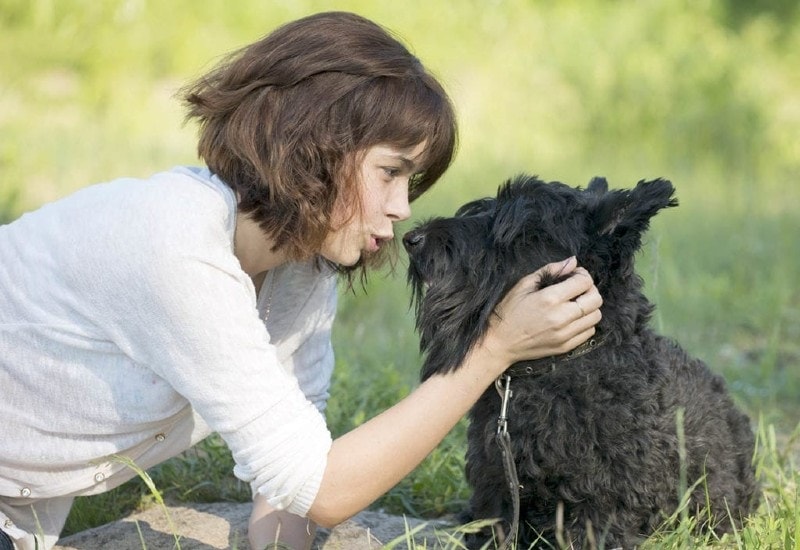Bernese Mountain Dog vs Australian Shepherd: The Differences (With Pictures)
By Jessica Kim
Updated on

Click to Skip Ahead
Bernese Mountain Dogs and Australian Shepherds are both hardy working dogs with exceptional work ethics. While both breeds can become excellent family dogs, they have different temperaments and care needs. It’s important for potential dog owners to get a good picture of what daily life with certain dog breeds is like so that they bring home a pet that matches and integrates well into their lifestyle.
For the most part, Bernese Mountain Dogs are easygoing dogs that are great for families with young children and first-time dog owners. However, they have several significant genetic health conditions that owners must plan for and anticipate. Australian Shepherds are wonderful family pets, but owners must be prepared to have enough time to meet their exercise and companionship requirements.
Our overview of each breed will provide all the essential information you need and help you determine if they’re the right fit for you.
Visual Differences

At a Glance
- Average height (adult): 23 – 28 inches
- Average weight (adult): 70 – 115 pounds
- Lifespan: 7 – 10 years
- Exercise: 1+ hours a day
- Grooming needs: Extensive
- Family-friendly: Yes
- Other pet-friendly: Often
- Trainability: Intelligent, eager to please
- Average height (adult): 18-23 inches
- Average weight (adult): 40 – 65 pounds
- Lifespan: 12 – 15 years
- Exercise: 2+ hours a day
- Grooming needs: Minimal
- Family-friendly: Yes, but better with older children
- Other pet-friendly: Often
- Trainability: Intelligent, fast learners
Bernese Mountain Dog Overview
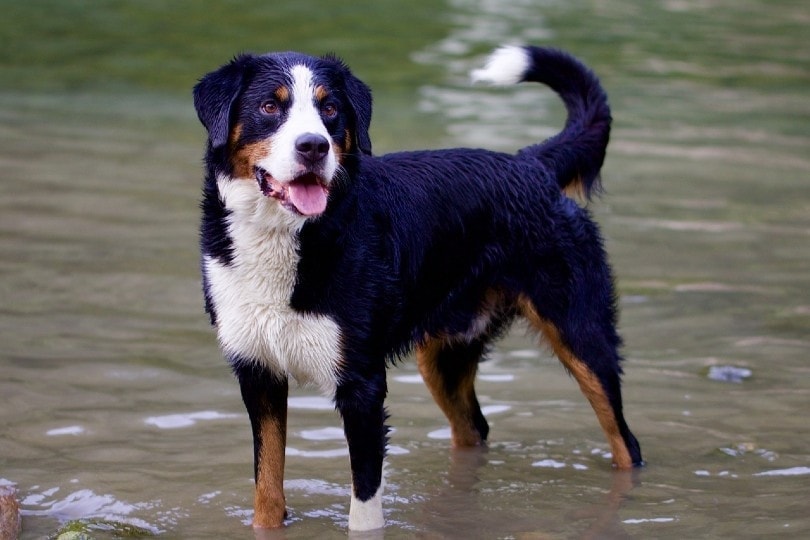
Personality / Character
Bernese Mountain Dogs were originally bred as working dogs. These strong dogs were often used to pull carts and be guard dogs. While they have a gritty past, they’re also known for their sweet and easygoing natures. So, they make wonderful family dogs and are often protective, patient, and loving with young children.
Just keep in mind that Bernese Mountain Dogs can be good with children, but some may not be very aware of their large size. So, it’s important to supervise their interactions with young children or smaller pets. They may need some guidance and training to establish good boundaries and play gently.
Exercise
Despite their calm nature, Bernese Mountain Dogs still need plenty of exercise to remain happy and healthy. These hardy dogs will enjoy daily walks and playing off-leash in dog parks. Due to their thick coats, Bernese Mountain Dogs tend to enjoy being outside, especially in cooler climates. While they can live in urban areas, they’ll benefit greatly from playing and running within a fenced yard.
Companionship is extremely important to Bernese Mountain Dogs. So, they’ll be happy to go wherever their families go and can keep up with nature hikes and camping. Participating in outdoor activities together can be a great way to keep Bernese Mountain Dogs physically active.
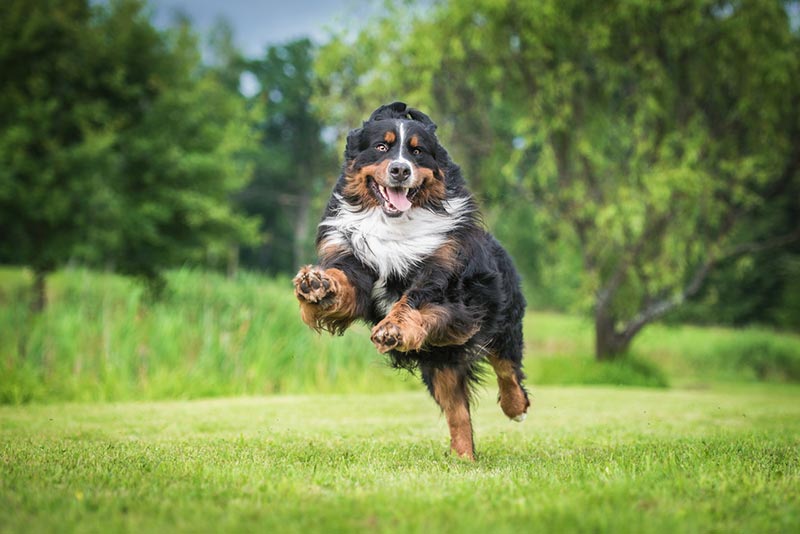
Training
Bernese Mountain Dogs are excellent dogs for first-time owners because of their trainability. They have strong loyalty tendencies, so once they establish a bond with a person, they become eager to please and relatively easy to train. They’re also smart dogs, so after you build a strong foundation with obedience training, they’re quick to learn new commands.
Health
Unfortunately, Bernese Mountain Dogs tend to have shorter life spans than most dog breeds because of their susceptibility to different types of cancers. They can also develop other health conditions common to large dog breeds, like elbow and hip dysplasia.
Bernese Mountain Dogs are also a breed that’s more prone to gastric dilatation-volvulus (GDV) complex, which is commonly known as “bloat.” GDV can become a dangerous condition that may require surgery. So, owners must care for Bernese Mountain Dogs in a manner that helps reduce the risk of bloat.
Because Bernese Mountain Dogs can have a few health conditions, owners may want to consider pet insurance to help pay for veterinary care costs. Pet insurance can cover genetic conditions and cancer treatments as long as they’re not pre-existing conditions. It’s a considerable option if you’re looking for a more consistent means of budgeting pet care expenses, and you’ll be better prepared to pay for any emergency treatments.
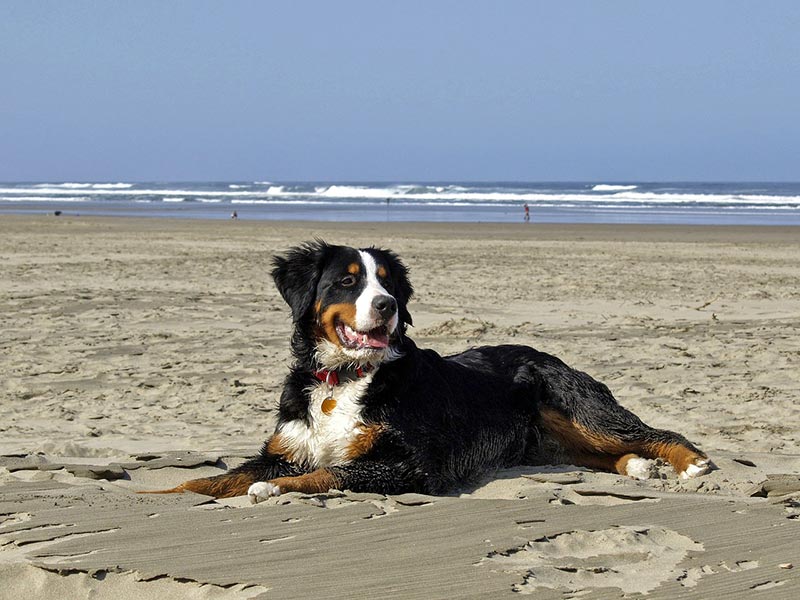
Grooming
Bernese Mountain Dogs are heavy shedders and need to be brushed frequently to help manage shedding around the house. They’ll also require full grooming almost every other month. Owners should be prepared to vacuum more frequently if they plan to bring home a Bernese Mountain Dog.
These dogs are also susceptible to ear infections because their droopy ears can trap moisture. So, it’s important to clean out their ears regularly with an ear cleanser to keep them clean and dry.
Suitable for:
Overall, Bernese Mountain Dogs are great for first-time dog owners. Despite being larger than Australian Shepherds, they’re quite gentle and are known to get along with young children very well. They also have lower exercise needs, so you don’t have to worry about spending too much time with exercise.
- Great dog for first-time owners
- Good with young children
- Loyal and easy to train
- Moderate exercise needs
- Significant health issues
- Heavy shedders
Australian Shepherd Overview
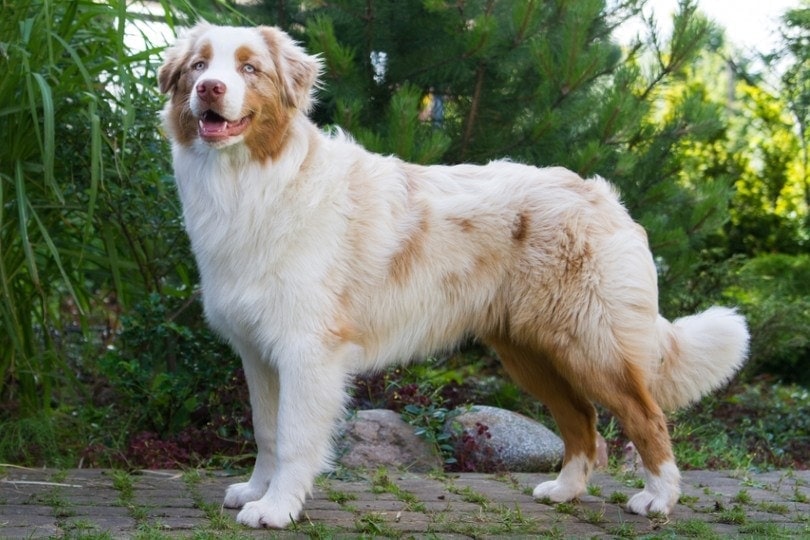
Personality / Character
Australian Shepherds are also known as shadow dogs because of their strong loyalty tendencies. They aren’t known to be social dogs and can be aloof toward strangers. These dogs are true family dogs that tend to form strong bonds with one or two people and prefer spending time with just their families.
Because they’re so people-oriented, Australian Shepherds do not do well with being home alone for long hours. Their companionship needs also may not be met by taking them to doggy daycare or leaving them with a pet sitter because they want to be with their family members.
Exercise
Unlike the Bernese Mountain Dog, Australian Shepherds are extremely active and energetic. They need at least 2 hours of exercise a day. They’ll enjoy brisk walks around the neighborhood, but what they really need is space to run. Australian Shepherds were bred as herding dogs, so they’re built to run across fields and chase livestock. They have a lot of stamina and are hardworking dogs that are always eager to take on a job.
Because they’re high-energy dogs, Australian Shepherds do best living in homes with a large, fenced yard or in more rural areas with space to run. They can live in urban settings, but it’s especially important for owners to meet their exercise needs. Australian Shepherds that don’t get exercise will direct their energy and boredom towards destructive behaviors and can easily tear furniture to shreds or become noisy neighbors.
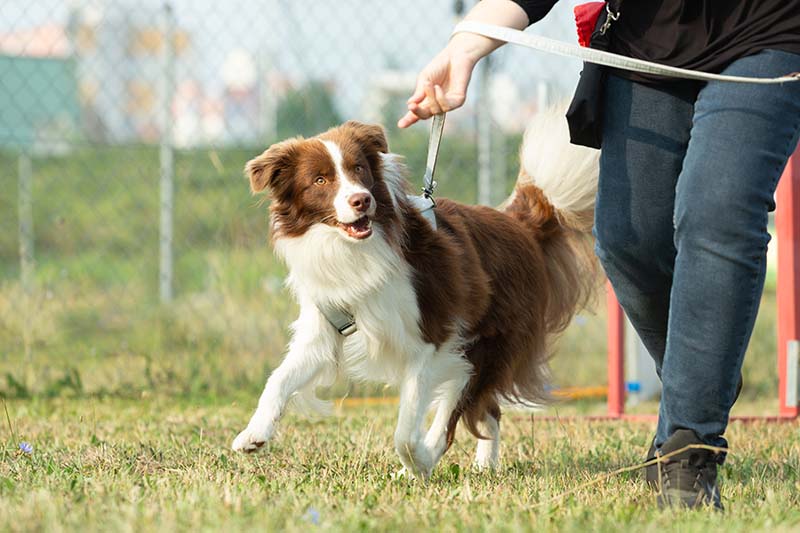
Training
Australian Shepherds are fast learners and are a breed that excels in obedience training. However, they need a strong and fair owner that can provide consistent training, especially in the beginning stages. Therefore, these dogs are best for experienced dog owners that have the time to invest in good obedience training.
Once an Australian Shepherd catches onto the basics of obedience training, they become quick learners. Australian Shepherds that have a strong bond with their owners are extremely teachable and eager to please.
Since Australian Shepherds are extremely smart, they’ll also need regular mental exercise. They’ll enjoy playing with enrichment toys, like treat dispensing toys and puzzles. They also excel in competitive dog sports, like agility courses and dog frisbee. Participating in sports is another great way for owners to strengthen their bond with their dogs and spend more time together.
Health
Australian Shepherds are a generally healthy breed and have a longer lifespan than Bernese Mountain Dogs. However, they can develop some bone and joint issues as they age, such as patellar luxation and hip dysplasia.
They’re also susceptible to having the MDR1 gene mutation, which is common in many herding breeds. This gene mutation can cause severe reactions to certain drugs. It’s discoverable through genetic testing, so owners will want to consider getting their Australian Shepherd tested to avoid preventable medical incidents.
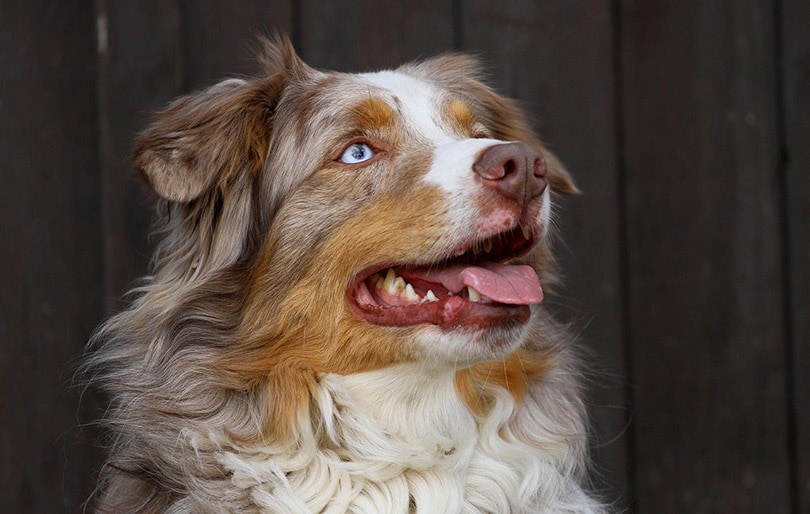
Grooming
Australian Shepherds have moderate grooming needs. They don’t shed as much as Bernese Mountain Dogs, but they’re seasonal heavy shedders. Owners should brush them at least once a week to manage loose hairs and prevent mats and tangles.
Suitable for:
Australian Shepherds need companionship and exercise. So, they often do best with experienced dog owners with active lifestyles. These dogs can become great running companions and enjoy participating in outdoor activities or dog sports. They also need to be in homes where someone is usually around so that they’re not left alone for a long time.
- Loyal and devoted
- Extremely intelligent
- Longer lifespan than Bernese Mountain Dogs
- Not suitable for first-time dog owners
- Requires a lot of time and exercise
Which Breed Is Right for You?
The Bernese Mountain Dog and Australian Shepherd are suitable for different types of people. Both are excellent companion dogs, but Australian Shepherds require more time and investment in training and exercise. So, the Australian Shepherd won’t be a good fit if you’re usually out and about in places where you can’t bring dogs. However, this dog can become an excellent companion if you live an active lifestyle and enjoy outdoor activities.
Bernese Mountain Dogs have less energy and are perfectly content with lounging on the couch with you. They’re also gentle and patient with children. However, owners must be prepared to potentially face significant health conditions and be able to set aside a budget for veterinary care bills.
Prospective dog owners must remember that while purebred dogs have standard temperaments, individual dogs can end up having completely contrasting personalities. However, knowing a breed’s temperament is helpful background information to keep in mind while searching for a dog that best matches your lifestyle.
- See also: Vizsla vs. Australian Shepherd
Featured Image Credit: (L) othmarsigrist, Pixabay | (R) Pauline Loroy, Unsplash




